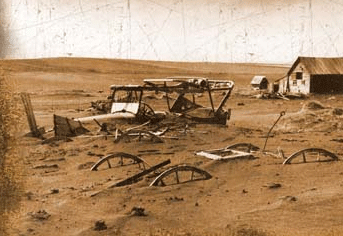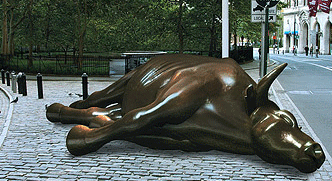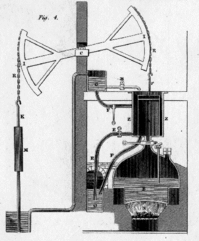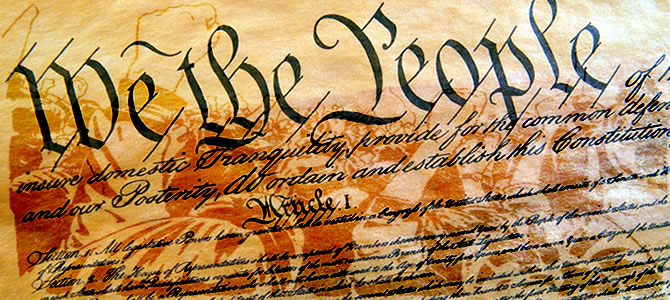 The 1930s are best known as the time of the Great Depression, brought on by the Wall Street crash of 1929. Most point to speculation, excessive debt, and an ensuing stock market bubble as the "cause" of the depression. The Great Depression was accompanied by the Dust Bowl--a time when much of America's agricultural "Heartland" dried up and blew away, leading to massive unemployment, homelessness, and social upheaval (remember the John Steinbeck classic, The Grapes of Wrath?).
The 1930s are best known as the time of the Great Depression, brought on by the Wall Street crash of 1929. Most point to speculation, excessive debt, and an ensuing stock market bubble as the "cause" of the depression. The Great Depression was accompanied by the Dust Bowl--a time when much of America's agricultural "Heartland" dried up and blew away, leading to massive unemployment, homelessness, and social upheaval (remember the John Steinbeck classic, The Grapes of Wrath?).Few remember, however, that the so-called "Roaring 20's" were the time when the agricultural economy in the US actually began its steep descent. In fact, the period immediately following World War I, represented the first large-scale application of mechanized farming practices in the World. This was uncharted territory: Never before had farmers used tractors and fossil fuels to cultivate increasingly large tracts of land to grow commodity crops for a burgeoning urban population. Not surprisingly, there were unintended consequences. In the free-for-all that ensued, farmers plowed and over-cultivated their way to oblivion, causing widespread soil erosion, loss of fertility, and ultimately, the Dust Bowl.
Some would say that the collapse of the farm economy was what made the Great Depression the decade long debacle that it became. Only with the advent of the Soil Conservation Service and a whole set of other institutions aimed at regulating and improving industrial agricultural practice, did the situation turn around after the Second World War.
 Fast forward to the 2000s. In 2008, the financial crisis, and the Great Recession struck. Most point to speculation, excessive debt, and an ensuing housing bubble as the "cause" of the recession. Few remember, however, that the 1990s were the time when academic finance and the financial services industry really took off. Driven by deregulation and the rapid develop of distributed computational power, exotic financial products such as CDOs and derivatives became possible for the first time.
Fast forward to the 2000s. In 2008, the financial crisis, and the Great Recession struck. Most point to speculation, excessive debt, and an ensuing housing bubble as the "cause" of the recession. Few remember, however, that the 1990s were the time when academic finance and the financial services industry really took off. Driven by deregulation and the rapid develop of distributed computational power, exotic financial products such as CDOs and derivatives became possible for the first time.Just like mechanized farming in the 1920s, these new tools got out of hand. In the free-for-all that ensued, financiers securitized and arbitraged their way to oblivion, causing widespread misery and wealth destruction.
The question is: where is the financial equivalent of the Soil Conservation Service?
When will we create the global institutions required to regulate and improve the functioning of this new force of nature? Until this happens, expect the New Dust Bowl to continue.


 In the emerging economies of the world, this revolution has already begun. ITC in India, for example, prides itself on creating livelihoods for the poor in the rural areas as part of its strategy for wasteland reforestation and agricultural productivity improvement. Indeed, as commodity costs rise, it may make sense to redefine productivity--from capital intensity and labor efficiency to labor intensity and capital efficiency. In the 21st century, "sustainable" enterprise must define success by the extent to which they create productive and fulfilling employment for the people of the world.
In the emerging economies of the world, this revolution has already begun. ITC in India, for example, prides itself on creating livelihoods for the poor in the rural areas as part of its strategy for wasteland reforestation and agricultural productivity improvement. Indeed, as commodity costs rise, it may make sense to redefine productivity--from capital intensity and labor efficiency to labor intensity and capital efficiency. In the 21st century, "sustainable" enterprise must define success by the extent to which they create productive and fulfilling employment for the people of the world.